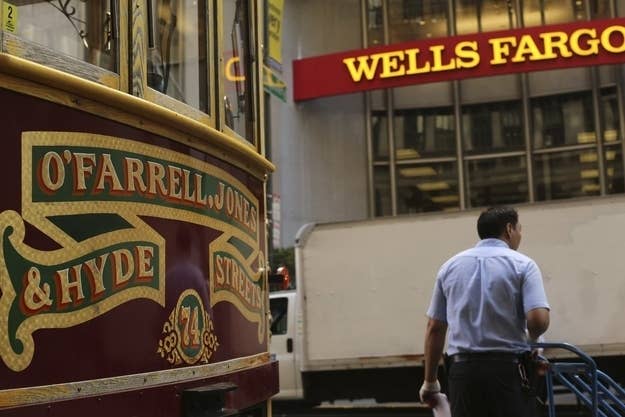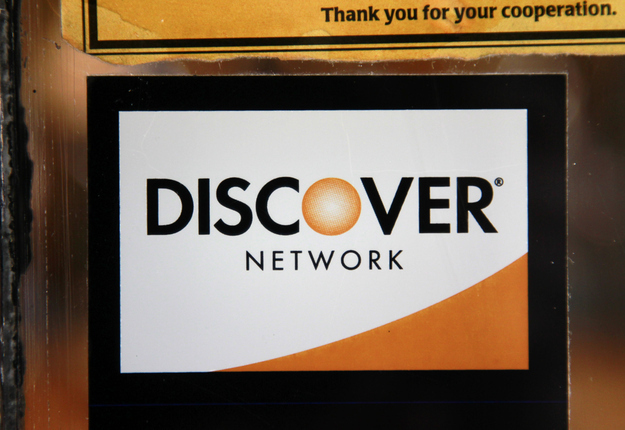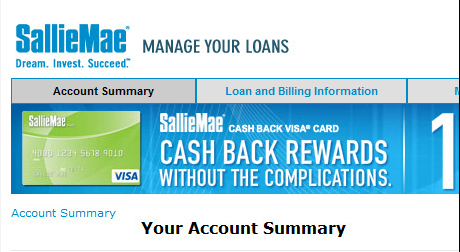Three of the biggest financial institutions lending money to student — Wells Fargo, Discover, and Sallie Mae — are having some issues with student loans.
According to the New York Fed, there is about $1 trillion in outstanding student loan debt, making it the second personal largest debt only to mortgages, but larger than car loans, credit cards, or home-equity. And delinquencies are fairly high — the official number is around 11% but the New York Fed says that's a low estimate because about half of those loans aren't being currently paid back. Many of them are not technically delinquent but are in grace periods, deferment, and forbearance from lenders and others who service the debt.
Since much of student loan debt is guaranteed (and now even issued by the government), it isn't a huge problem for the banks that still lend to students. But some banks, like JPMorgan, are getting out of the student loan business entirely. And for the financial institutions that still make loans and service them on their own, such as Wells Fargo, Discover, and Sallie Mae, there are some issues popping up.
Wells Fargo

One of the largest student lenders, Wells Fargo reported in its third quarter earnings that it has $22.4 billion of student loans outstanding, and $11.3 billion of those are not guaranteed by the federal government. While there was a sizable jump in origination thanks to this quarter covering the beginning of the school year, there was also a corresponding increase in the number of loans that are at least 30 days delinquent: $228 million worth of delinquent loans, just over 2% of its private loan portfolio, which is indicative not of the strength of their new loans but of how well their old ones are performing.
This isn't likely to be a huge problem for Wells: its $11 billion worth of non-guaranteed student loans pales in comparison to, say, its $50 billion worth of auto loans or $1.4 trillion in total assets.
Discover

Better known for its credit card lending, Discover has been making a big push into other kinds of personal lending, including student loans, especially as its largest competitors have pulled back. While Discover posted a $593 million profit this quarter, its stock fell thanks to the 6.9% decrease in earnings. In a call with analysts, Discover CEO David Nelms pointed to the company's large loan growth, especially student and personal loans, which were up 11% over the year, singling out private student loans, which were up 5% to $387 million.
"I'm also pleased with the growth of student loans," Nelms said.
For the loans Discover originated itself, net charge-offs, a measure of how much of its loans a bank doesn't expect to ever collect, creeped up more than half a percent, from .74% to 1.33%. Why? Because as more of Discover's student loans have already entered repayment, more borrowers have a chance to miss their payments. The portion of student loans that have actually entered delinquency was up from 1.38% to 1.6%
Sallie Mae

No discussion of student lending is complete without Sallie Mae, the largest student finance company. Although it has announced plans to split into two companies, one for federally guaranteed loans and another for private loans, for now it is still a unified company.
And it's lending more: over the year, its loan origination has ticked up 11%, while its charge-offs are down to their lowest level in five years, and reduced its money set aside for loan losses by $63 million, helping it earn $260 million in the quarter, compared to $188 million a year ago.
While most of its trends in repayment and charge-off were positive during the year, Sallie Mae reported a slight jump in total delinquencies from a quarter ago from 7.7% to 8.8% because of changing how the company services loans. Joseph DePaulo, the company's head of banking and finance, said in a conference call with analysts that the delinquency uptick "resulted from the transition of our private credit portfolio to a new servicing platform" and that Sallie Mae does "not believe the increase in delinquency is indicative of the future credit performance trends of these loans."
A recent report from the Consumer Financial Protection Bureau criticized the industry's loan servicing as a whole, saying "Neither the industry nor policymakers have adopted a uniform, comprehensive framework establishing student loan servicing standards, but this is certainly worthy of serious consideration."
